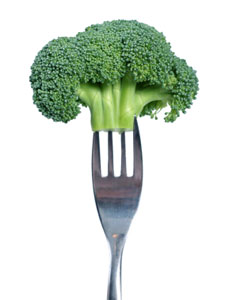Selling Health




The health benefits of tea have been a primary focus of industry marketing for roughly a decade now. Even with all the hype, there are surprisingly few tea consumers with much of an understanding for the health benefits of tea or how best to get them. Here are a few basic terms and answers to the most common questions that tea consumers ask. (NOTE: I've left caffeine for another article since that is a world unto itself)
Which style of tea offers the greatest health benefits?
Green teas have been extensively studied, and numerous findings have suggested that they aid in the fight against cancer and provide better breath, lower cholesterol, weight loss and general immune strength. These results appear to be valid, but the studies completely omitted other teas. For example, when testing the effects of green tea on weight loss, the results were impressive. However, what is not mentioned in this conclusion is that black tea yields nearly identical results.
Studies confirming the fact that all teas' benefits are similar are now trickling in. In Europe, scientists have concluded that black tea's benefits are consistent with greens. Studies in Taiwan are concluding the same about Oolongs. Why have so many scientists and reporters missed this connection? It is due to the fact that research was originally done to confirm or disprove the Ancient Chinese claims that "green tea is good for you," rather than find tea's benefits as a whole.
A little common sense confirms this: all teas come from the same plant (and therefore have the same basic composition), so we expect the benefits to be similar. Slight differences may occur in the varieties (due to the way that these teas are processed), but these are not considerable. So while White tea may provide a few more antioxidants than Black tea, this amount is likely negligible in relation to the benefits. To build immune strength, both will help pretty much equally.
Where do the health benefits come from?
Polyphenols provide a significant portion of the taste and the health benefits found in tea. Polyphenols are a group of chemical substances found in plants. Two classes of polyphenols are tannins (found in wine) and flavonoids. Tea is rich in flavonoids like catechins. Flavonoids are most commonly known for their antioxidant activity. Catechins like EGCG are found in high concentrations in Green Tea. In fact, it is the catechin EGCG that has put some bottled green teas in the news lately as providing a wealth of health benefits.
Let's try to put all of these scientific terms into context: Catechins are a type of antioxidant found in flavonoids. Flavonoids are a class of polyphenols. These terms are often used interchangeably when discussing the health benefits of tea.
Antioxidants are universally praised, but what do they actually do? The human body produces unstable molecules called oxidants, or free radicals. To become stable these oxidants steal electrons from other molecules and thereby damage the cells and can even cause DNA aberrations. Antioxidants bond to oxidants such as free radicals and inhibit the chemical reactions that cause cellular damage. Antioxidants can even target and repair DNA damage. All teas made with Camellia Sinensis tea leaves are high in flavonoids, a powerful class of antioxidants.
Tea contains a variety of antioxidants, and the processing of the tea does affect the levels. Oxidation causes small antioxidant chains to link together and form larger antioxidants. Most of the antioxidants found in black teas are Theaflavins and Thearubigins, while Green and White teas contain primarily the smaller Catechins.
Will drinking tea cause me to lose weight?
Maybe. Tea causes a slight increase in metabolic rates and encourages the body to burn fats (lipids). Tea increases insulin activity thereby moderating blood sugar levels. Most importantly, tea replaces other calorie rich drinks or foods in our diets. The truth is that all of these factors are minor, but combined certainly suggest that tea is PART of a healthy diet.
The USDA said it this way: "...until we do a really comprehensive study in which we have humans drink tea and see whether they lose weight, we can't actually say that green tea makes people lose weight. What we can say is that it raises metabolic rates and increases fat oxidation rates. Those are two things that are predictive of weight loss."
What is Wulong or Wu-Yi tea and will it help me loose weight
Wulong tea as it has been marketed in recent years is simply a marketing gimmick and is no more likely to lead to weight loss than any other tea. Tea IS very good for you, but there is no reason to overpay just because some celebrity endorsed it or because they have impressive before and after pictures of models.
How many calories are in a cup of tea?
Most teas will have a couple calories resulting from ingested plant matter. Fruit teas may have as many as 8 calories. Frankly we consider this a non-issue. The health benefits if all teas (classic or fruit) are considerable. No one would think to question the calorie content of a head of broccoli!
What is the best "detox" tea.
This question has been asked in relation to everything from a bad hangover to a disturbed aura to a recent cancer diagnoses (happens more than you would believe). Without making inappropriate claims, we can easily say that the antioxidants in tea AND tisanes are prized for their ability to protect our bodies from Free Radical which can damage cells, cause inflammation and promote disease. In the end there is no "best" detox tea, but some of the teas with the highest content of healthy elements include white teas (especially Silver Needles) and green teas (especially Gyokuro or Matcha).
Do any of your teas contain allergens?
For Adagio the answer is no. None of our teas contain nuts lactose, or gluten. You will need to determine the ACCURATE answer for your teas!
Does adding things to my tea affect the health benefits
In some cases.
Lemon, in addition to containing vitamin C (an antioxidant) itself, actually increases your body's ability to absorb the antioxidants in the tea. Other citrus fruits have similar impact.
Milk or cream MAY reduce the body's ability to absorb the antioxidants in tea. To this point, the research is offering conflicting reports. The theory is that the proteins bind with the antioxidants and, in some patients, this has been found to completely negate the antioxidant effect. In other studies, no impact has been found.
Is tea dehydrating?
No. Caffeine is a mild diuretic for people who do not regularly drink caffeine, but this effect does not present itself in regular coffee or tea drinkers. Regardless, tea is 99.5% water, and any impact of the caffeine on hydration even in non tea-drinkers would be practically imperceptible.
Is tea acidic?
Slightly. The water you use will have a great deal of impact on the answer. Pure water has a pH of 7, and anything less is acidic. Cola has a pH of 2.5, orange juice 3.5, and black tea approximately 4.9.
Why does tea cause some people stomach aches?
There are two compounds in tea that can be rough on a sensitive or empty stomach. Caffeine can cause heartburn and acid reflux. Polyphenols (a.k.a. flavonoids or antioxidants) can bind with stomach enzymes and cause discomfort in some people.
Does tea contain fluoride?
Yes. Tea is a natural source of fluoride which improves tooth and bone health. That said, tea contains much less fluoride than is added to the water in most municipalities. Even consumption of 10 cups per day of most teas would not lead you to take in more than the recommended daily allowance of fluoride.
Does tea contain tannins?
No. Polyphenols fall into one of two groups - flavonoids and tannins. Flavonoids are found in tea, and certain fruits and vegetables. Tannins are found in other fruits and vegetables including grapes, cocoa and apples. Both flavonoids and tannins create similar astringent, dry-mouth sensations. So while technically tea contains NO tannins, it's usually not worth it to correct the record when discussing tea.
Should pregnant women avoid tea?
The answer to this depends on your doctor. Some doctors recommend cutting out all caffeine, which would obviously preclude traditional teas. In addition, the antioxidants in tea cause a minor disruption in the body's ability to absorb Folate and Iron, both important for fetal development. In cases of women who already enjoy a healthy diet, the benefits of tea generally outweigh any concerns. If you'd rather be 100% safe, consider tisanes.
Conclusion
So the question is what can we accurately say? Tea is calorie-free and rich in antioxidants. Tea is an important part of a healthy diet and lifestyle. While there is not yet enough evidence to make conclusive statements about specific benefits, there are new research reports each week uncovering new potential links between tea consumption and the improvement in, or prevention of, most medical ailments.
So far the FDA has not approved ANY claims on the health benefits of tea. As a result, I like to simply fall back on the following message: Few of us get the recommended 5-7 daily servings of fruits and vegetables. Most of us have heard that when you boil or steam vegetables, most of the nutrients end up in the water. THAT IS TEA!! Drinking tea is the rough equivalent of a serving of broccoli. That may not be medicine, but it's certainly part of a healthy diet!
Adagio Teas
Twitter: @AdagioRetail
